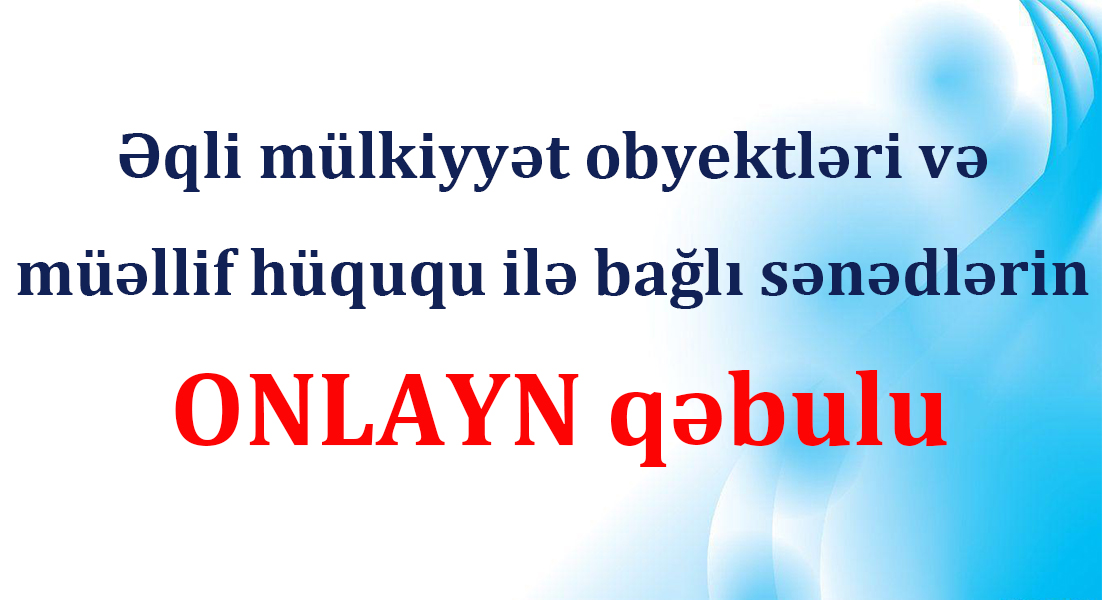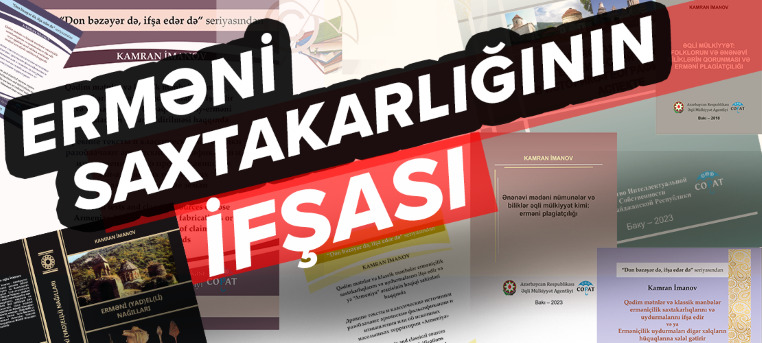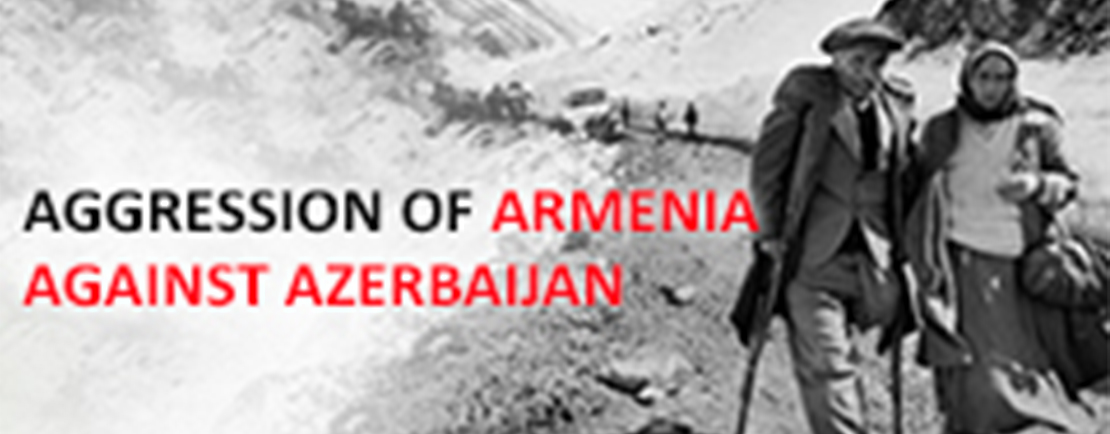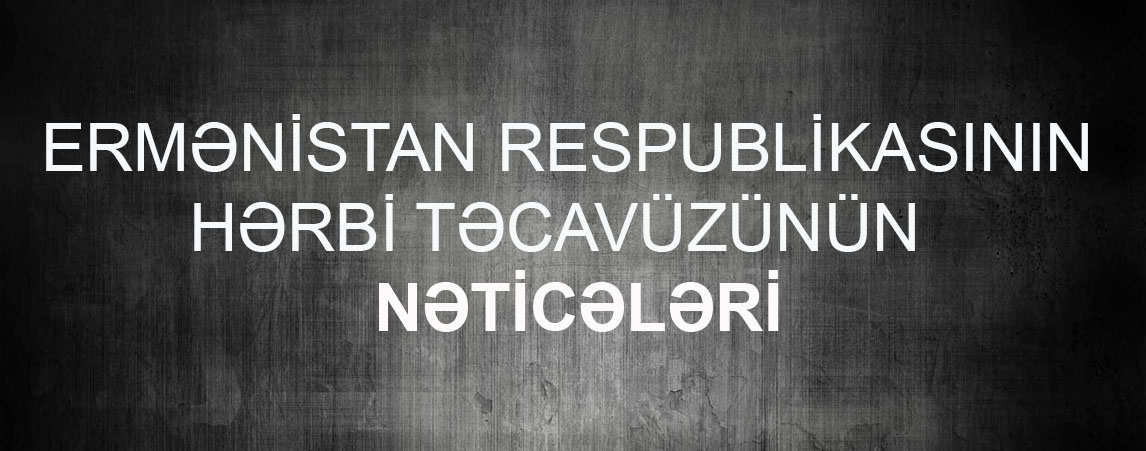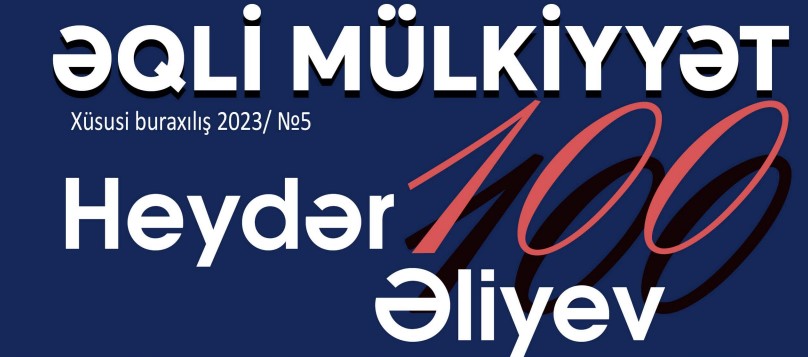Comment of Intellectual Property Agency: Baklava / baklava has nothing to do with Armenians

The Armenian press has recently reported that baklava, one of the most widely used sweets in ancient Turkish cuisine, is being prepared by Armenians to apply to UNESCO for inclusion in the world's intangible cultural heritage policy as an example of its intangible cultural heritage.
First of all, it should be noted that baklava / baklava, one of the most delicious and widespread sweets, is one of the most widely used sweets in the culinary culture of a number of Eastern peoples, especially the Turkic peoples, and has nothing to do with Armenian cuisine. On the other hand, there is no etymological connection between the word baklava / baklava and the Armenian language, and the ethnolinguistic analysis of this linguistic unit shows that it belongs to the lexicon of the Turkic peoples and has the same semantics, although it sounds slightly phonetic in some languages. For example, it sounds like “baklava” in Turkish, “pakhlava” in Azerbaijani, and baklava / pakhlava in Uzbek, Kazakh and Tatar. According to some experts, the word has been in use since ancient times as bakilagi-bakilavi-baklava, in other variants as baklagu or baklagi, and today it is used in many languages in the form of baklava / baklava, and its meaning is "layered cake". Dictionaries say that this word belongs to the lexicon of Anatolian Turks or Azerbaijani Turks.
Professor Tuncer Gulensoy, a linguist of Turkish origin, states that the root of the word baklava / pakhlava in Turkish is bakl-ı (fodder) and the suffixes -la-ğı are added to it. The word has evolved as bakilagi>bakilavi>baklava (Gülensoy, Tuncer (2007). Türkiye Türkcesindeki Türkçe Sözcüklerin Köken Bilgisi Sözlüğü-I . Türkiye: Türk Dil Kurumu. s. 106. ISBN 978-9751619709).
This word has spread to the languages of other non-Turkic peoples. For example, the word baklava / pakhlava was first encountered in English in 1650, and the word is shown to be Turkism derived from Turkish. (Oxford English Dictionary, 2nd edition).
Historian Nuri Janli states that the first written information about baklava dates back to the 15th century. According to him, the Topkapi Museum's cookbook of the Ottoman rulers contains a note from the time of Sultan Fatih, who conquered Istanbul. The note states that the first baklava in the palace was made in August 1453 (ЕленаСолнцева. Пахлаваилижизнь.Туркизащищаютсмесьорехов, медаитестаотиностраннойагрессии (12.07.2006 15:30); (Najmieh K. Batmanglij, A Taste of Persia: An Introduction to Persian Cooking.I. B. Tauris, 2007).
This word has an ancient Turkic-Azerbaijani history. It is known from our literature that a poem about Gaygili Abdal, written in the middle of the 15th century, said the following about “baklava”:
“İki yüz təpsi baklava, içində
Kimi badəm, kimi mərcimək olsa”
(“Two hundred trays of baklava, inside
Some almonds, some lentils ")
The word "baklava" is also found in a 17th century Turkish song:
Dərdə dəvadır baklava,
Cana şəfadır baklava,
Yiyəmmədim doyunca,
İbrət-nümadır baklava.
(Panacea for all troubles baklava,
Healing the soul and body baklava,
Didn't eat enough
All edification baklava.)
All this shows that at that time, such "baklava" was already one of the well-known sweets of Turkish cuisine.
A number of foreign scholars and researchers have noted in their works that the word baklava / pakhlava belongs to the Turkish language and is an example of the culinary culture of the Turkic peoples as a type of sweets.
For example, the famous Austrian linguist Franz Miklosic, in his dictionary of Turkish words, noted that the word baklava / baklava passed from the lexicon of the Turkic language to the Balkans and Eastern Europe, and explained the meaning of the word as "layered cake". (Von dr. Franz Miklosic, “Die türkischen elemente in den süd-ost und ost-europäischen sprachen: (griechisch albanisch rumunisch bulgarisch serbisch kleinrussisch grossrussisch polnisch. WIEN, 1884. S.19).
Well-known German orientalist, Turkologist Gerhard Derfer also included the word baklava / pakhlava in his 4-volume new Persian dictionary of Turkisms, noting that the word is of Turkish origin. (Gerhard Doerfer, “Türkische und Mongolische Elemente im Neupersischen”, 1965, T2, s.255).
Historian Paul D. Buell states in his book that the word baklava / pakhlava is related to Turkish and has the same meaning in Mongolian (Paul D. Buell, "Moğol İmparatorluğu ve Türkleşme: Yemek ve Yemek Yollarının Kanıtı", s. 200 ff, Amitai-Preiss, 1999). This word, which belongs to the Turkish language, is used in many languages with small phonetic differences (Merriam-Webster Çevrimiçi, sv Baklava" . Mw.com . 2012-04-22; "Dictionary.com. Kısaltılmamış, sv Baklava" . sözlük.reference.com . 2012-04-22).
In short, the idea that the word baklava / pakhlava is of Turkish origin is a clear conclusion accepted by the scientific community.
Although some linguists have suggested that the word baklava / baklava is derived from the Arabic word "baglawi" - "woven chain", this version has not been confirmed.
Bashir Ahmadov, one of the Azerbaijani scholars, noted that the word baklava / baklava is related to the word bean, which is widely used in our language (Bəşir Əhmədov. Etimologiya lüğəti).
Speaking about the etymology of the word baklava / baklava, it should be noted that there are opinions that the name of this sweet comes from two words - bakla / pakhla in Turkic and halva in Arabic, and it has some scientific basis. It is obvious that bakla/pakhla is considered legumes in Azerbaijan. However, historically, the word has been applied to all types of cereals and legumes. Walnuts, almonds, peanuts, etc. also falls into this category. It should be noted that paklava is sometimes made from rice and corn, as well as flour from cereals and legumes. Most likely, the word "бакалея" in Russian is from the same root.
The word "halva" of Arabic origin is translated as "flour confectionery". The word baklava / paklava is a contamination, ie a new word formed from the combination of the words bakla / pakla and halva, and most importantly, it was created in accordance with the rules of word formation of the Turkish language. More precisely, the word baklahalva / paxlahalva phonetically became baklava / baklava by cutting the syllable in the middle of the word.
The word is also widely used in Russian lexicographic sources:
“пахлава”- oriental cake with nuts (http://www.mirefremova.ru. СовременныйтолковыйсловарьрусскогоязыкаЕфремовойТ.Ф.,2000);
pie with different types of nut filling – Baku paklava, Nakhchivan paklava, Shusha paklava, with noodles, like noodles, etc.. (Похлебкин В.В., Большая энсиклопедия кулинарного искусства. Все ресепты В.В Похлебкина, Центрполиграф,М., 2009);
Azerbaijani national pie with nuts the size of a baking dish, after baking is divided into rhombus parts and has different types, which differ in the nature of the dough, the ratio of dough and fillings, their method of filling and placement, the ratio of filling components (Кулинарныйсловарь, ЗдановичЛ.И. Серия: Карманнаябиблиотека. 2001, 4000 с.).
A number of bean (pakhla) symbols can also be found on national Azerbaijani carpets, and they resemble pakhlava in shape. If we pay attention to the geometric patterns on many of our carpets, we can see straight, broken and wavy lines, as well as paintings depicting the sun, moon and stars, as well as ornaments such as pakhlava or rhombus. In general, baklava is a symbol of fire in our national culture, and the hazelnut in the middle reflects the mythical meaning of creation.
Interestingly, a number of Armenian written sources also state that the word baklava / pakhlava belongs to the Turkish lexicon, and the sweets of the same name belong to the culinary culture of the Turkic peoples and have no etymological relevance to the Armenians.
For example, the Armenian writer and linguist Sevan Nishanyan considers the oldest forms of the word known to him (before 1500) as baklağı and baklağu, stating that they are of Proto-Turkish origin, thus showing that the word has nothing to do with Armenians. (Nişanyan, Sevan (2009) (Türkçe). Sözlerin Soyağacı - Çağdaş Türkçenin Etimolojik Sözlüğü [Kelimelerin Soyağacı - Çağdaş Türkçenin Etimolojik Sözlüğü]. İstanbul. http://nisanyansozluk.com/?k =baklava).
Speaking of baklava / baklava in Armenian sources, it is worth mentioning an interesting Armenian tale. We are talking about the Armenian folklore unit included in the book "Armenian Cuisine" by Armenian author Talita Ambarsumovna Khatranova, and the author refers to this tale. This Armenian folk tale "The Taste of Pakhlava" is very interesting in terms of exposing their lies. Here is the story:
- “Which dessert is the best and which is the most delicious?
- "No, brothers," interrupted Sako, "the sweetest thing is baklava
- How do you know that?
- "If I didn't know, I wouldn't talk," Sako replied.
- How do you know? Eh, have you ever eaten paklava? - Magdesants Arut mocked.
- "I haven't eaten, but I know," Sako replied proudly.
- If you haven't eaten, how do you know that paklava is sweet? - Keri Taurus asked.
- Oh, you! "Sako replied offended," although I haven't eaten paklava, but I know. I learned about this when I went to the Kars bazar last year. I saw people eating baklava there. They said: "Baklava is very sweet".
Everyone told their favorite dish and praised it as the most delicious.
This simple Armenian folk tale is a clear indication of the extent to which baklava / pakhlava belongs to the Hay-Armenians, and its content proves once again that they do not have a clear idea of the concept of baklava in their historical and genetic memory. Moreover, as can be seen from the references quoted by a number of influential authors, the word baklava / baklava has nothing to do with the Armenian language and, as a type of confectionery, with Armenian cuisine. In short, as always, today we face another Armenian forgery.
Thus, the fact that the word baklava / baklava belongs to the Turkic lexicon and the type of sweets known by this name belongs to the culinary culture of the Turkic peoples is a world-accepted fact, and the current claims of Hay-Armenians about baklava / pakhlava have no historical, scientific or legal basis.


